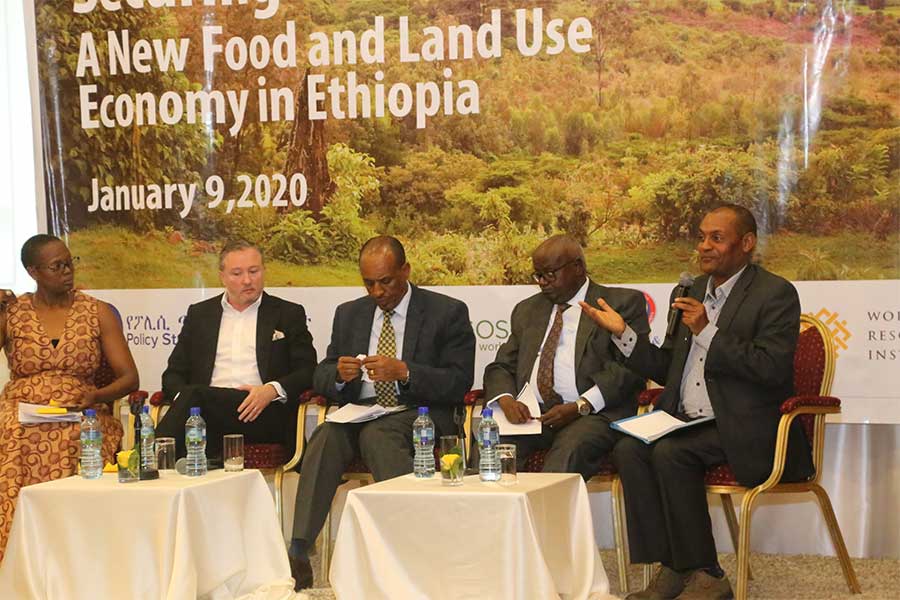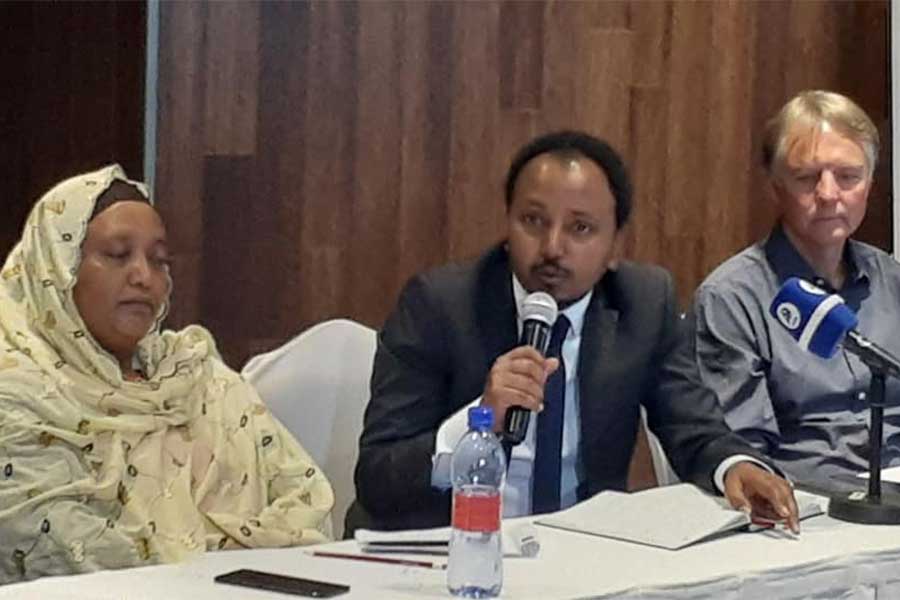
In the heart of Gonder, a town in the Amhara Regional State, a palpable sense of uncertainty lingers. Once the lifeblood of vibrant festivals that attracted travellers from far and wide, the town now struggles with a starkly different reality. The ancient castles, standing as silent witnesses to the test of time, overlook a town floundering under the weight of an economic downshift.
The Grand Goha Hotel, once a thriving hub during festive seasons, paints a picture of the broader economic woes. With 82 bedrooms, it has historically been a centre of the town's hospitality industry, but recent times have seen only half of these rooms occupied during key celebrations like the Epiphany. Amare Atnafu, the hotel's general manager, recalled times when additional tents were necessary to accommodate the overflow of guests – a sharp contrast to the current situation.
The hotel, a part of Bekas Plc, employs 140 staff, whose livelihoods depend heavily on the influx of tourists. However, the sharp decline in visitors has left many rooms unoccupied, straining the hotel's finances to the point where covering basic costs like electricity and salaries has become demanding. It has also impacted their ability to meet tax obligations, revealing the depth of the financial crisis they face.
This situation is not isolated to the Grand Goha Hotel but is a telltale of broader economic upheaval in the region. The Amhara Tourism Bureau, which once boasted annual revenues of 5.4 billion Br, now faces a significant reduction, having collected only 1.6 billion Br in half a year. The ongoing armed conflict in various parts of the region has heightened safety concerns among potential visitors, leading to a postponement of travel plans.
The tourism sector, critical for the region's economy, especially between August and February, has seen a dramatic decrease in numbers. The ambitious target of attracting 84,000 international visitors by the year's end seems increasingly unattainable as last year's figure of 30,000 tourists dwindled to just 10,000 in half a year. The sector, barely recovering from the impacts of the pandemic and the civil war in the north waged for two years, faced further setbacks with the eruption of another round of conflicts in various parts of the region and the subsequent declaration of a state of emergency in August last year.
"Peace and tourism are two sides of the same coin," Melakmu Assefa, the Bureau's director of tourism development, succinctly put it.
This sentiment is echoed by Alubel Workie, a lecturer at the Department of Tourism Management at Gonder University, who points out that low-level promotion, inept leadership, and instability are major factors stalling the sector's growth.
"Injecting finance into unstable locations is not a panacea," said Alubel.
He advocated for establishing training centres to develop skilled professionals in the field, urging stability is the linchpin for any sector resurgence.
The narrative shifts when considering the capital city, Addis Abeba, where the vitality of conferences and meetings once filled the air. However, hoteliers reveal that the situation has changed post-pandemic, with technological and service delivery gaps stunting established hotels.
According to Ashenafi Mulugeta, a hospitality consultant, there is a need to focus on meetings, incentives, conferences, and exhibitions - MICE in the industry's parlance - tourism as a potential lifeline for the industry.
But the conferences and meetings business has been shifted to other African countries like Rwanda and Kenya, which are actively working on business tourism, observed Aster Solomon, a major shareholder of Mosaic Hotel in Addis Ababa, is at the forefront of a lobby group representing 170 hotels in the city. About 10 have shut down or transformed into other businesses while new hotels emerged, driven by franchise agreements.
"They're actively working on business tourism," she said of the other countries. "This adds another layer of complexity to the situation."
Ethiopian Airlines, once an indispensable player in supporting the tourism sector by banding with hotels for transit passengers, has now turned its focus to its establishment, the newly constructed Skylight Hotel on Africa Avenue (Bole Road). It is a fateful development for several hotels in the city, which has led to declined business, exacerbating the already precarious state. With its newly constructed property of around 1,000 rooms, it charges 1,200 Br a night for a transit guest.
Aster remembered the long-drawn negotiations that took place to adjust the inadequate fees paid for transiting passengers, which were then adjusted to 2,000 Br.
Assefa Tilahun, an economist at Gonder University, pointed out that tourism is a critical livelihood, from the grassroots level to hotels and tour operators. The slowdown in tourism has resulted in lower foreign currency flow and difficulties for businesses in paying taxes and salaries. Domestic and international tourism was valued at around 61 billion Br and 3.6 billion dollars last year, respectively, with 38.2 million domestic and one million international tourists.
"It's what we saw in agricultural production reports that do not show the reality on the ground," said Assefa.
There is scepticism about the reported increase in tourist flow and revenue, especially given the instability in the northern part of the country, which is a preferred destination for many tourists. Ministry of Tourism struggles with accurate tools for collecting data on domestic and international travellers.
A study on the economic contribution of tourism activities discovered that infrastructure development, promotion, awareness creation, and local community participation in decision-making are crucial for the sector's success. However, projects like "Gebeta Le'Hager" and "Gebeta Le'Tiwlid", promoted by Prime Minister Abiy Ahmed (PhD), have not been enough to resurrect the sector, according to Fitsum Gezahegn, head of the Ethiopian Tour Operators Association (ETOA).
The Ministry of Tourism's struggles with collecting accurate data on domestic and international travellers further expose the tourism industry's woes.
Alemayehu Getachew, the Minisytry's head of communication, disclosed plans to develop tourist satellite accounts to illustrate the sector. The Ministry's current ambition lies in rating the country's 340 hotels, intending to rank 142 establishments by the year's end.
Tariku Demisse, head of tourist service providers and licensing at the Ministry, believes in the importance of this rating system.
"Hotels should be evaluated every three years to maintain their star status," he told Fortune.
Adamantly opposing the idea of businesses being overtaken by the Airlines, for harming their market share, he claimed that the Ministry has done all it can for the sector and urges hoteliers to focus on enhancing their capacity to serve guests, pointing to the sector's vast growth potential.
"It's more than enough," he said, recalling duty-free import privilege for construction and opportunities to train their employees abroad.
The government's "Back-to-Origins" initiative, aiming to draw second-generation diaspora community back to Ethiopia, has seen mixed results. Despite offering a 25pc discount to the diaspora in collaboration with hotels, there has been a notable decline in their numbers over the past three years.
Elgel Hotel, a proactive participant in the initiative, offered discounts. The Hotel has an average occupancy rate of 72pc a day, disclosed Alemayehu Fikremariam, general manager. He noted that the diaspora community has not taken advantage of the package as expected.
"We haven't seen any guest surge," he said.
Fitsum described the challenges tour operators face, including travel alerts embassies in Addis Abeba regularly issue to their citizens about Ethiopia's uncertainties. He called for advocacy to promote Ethiopia as a tourist destination, arguing against the official narrative presented by the Ministry, which he claims does not reflect the reality on the ground.
"Things are not what they seem," he said.
Abraham Mola, a major shareholder of Ethiopian Highland Tour, described the grim reality for tour companies. Incorporated 12 years ago with half a billion Birr investment, his company has seen its business decline sharply. Once indulging up to 15 trips a month, the tour company has dwindled to just two tours this year. Financial strains forced Abraham to sell all three company cars to meet tax obligations and payroll for employees residing at tourist destinations.
Out of the 270 tour operators, a significant half now operate in a landscape defined by volatility while insecurity on the roads and the scepticism of travellers fuel the struggle.
"Tourists could come only if they were sure of their safety," he said, stressing the critical importance of stability for the sector's survival.
PUBLISHED ON
Jan 27,2024 [ VOL
24 , NO
1239]

Radar | Mar 16,2024

Fortune News | Feb 15,2020

Sunday with Eden | Apr 13,2019

Radar | Apr 12,2020

Radar | Jan 11,2020

Fortune News | Feb 22,2020

Fortune News | Mar 21,2020

Sunday with Eden | Sep 10,2023

Editorial | Aug 06,2022

Radar | Aug 03,2019

Dec 22 , 2024 . By TIZITA SHEWAFERAW
Charged with transforming colossal state-owned enterprises into modern and competitiv...

Aug 18 , 2024 . By AKSAH ITALO
Although predictable Yonas Zerihun's job in the ride-hailing service is not immune to...

Jul 28 , 2024 . By TIZITA SHEWAFERAW
Unhabitual, perhaps too many, Samuel Gebreyohannes, 38, used to occasionally enjoy a couple of beers at breakfast. However, he recently swit...

Jul 13 , 2024 . By AKSAH ITALO
Investors who rely on tractors, trucks, and field vehicles for commuting, transporting commodities, and f...

Jun 28 , 2025
Meseret Damtie, the assertive auditor general, has never been shy about naming names...

Jun 21 , 2025
A well-worn adage says, “Budget is not destiny, but it is direction.” Examining t...

Jun 14 , 2025
Yet again, the Horn of Africa is bracing for trouble. A region already frayed by wars...

Jun 7 , 2025
Few promises shine brighter in Addis Abeba than the pledge of a roof for every family...